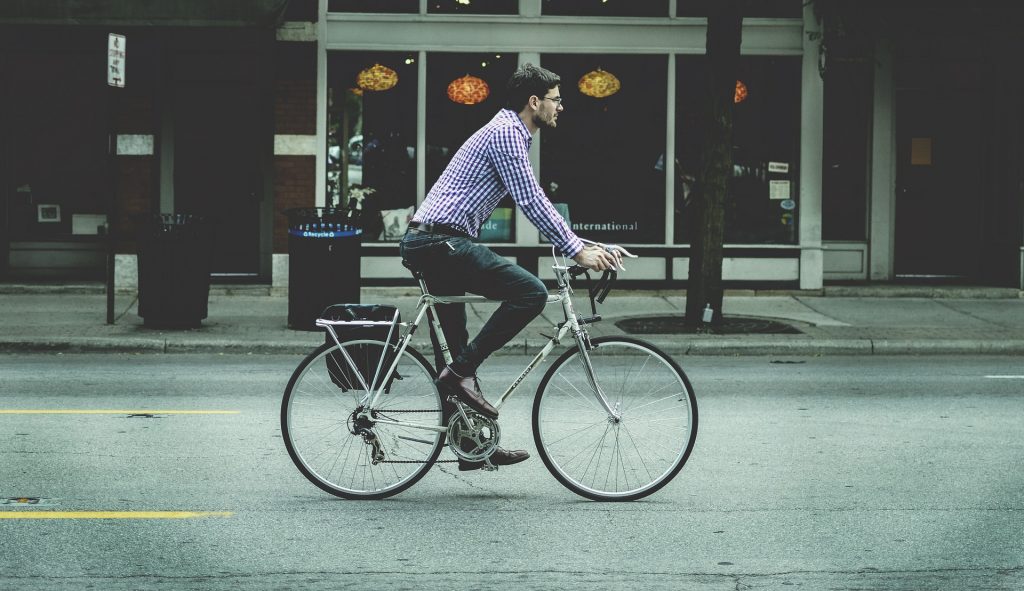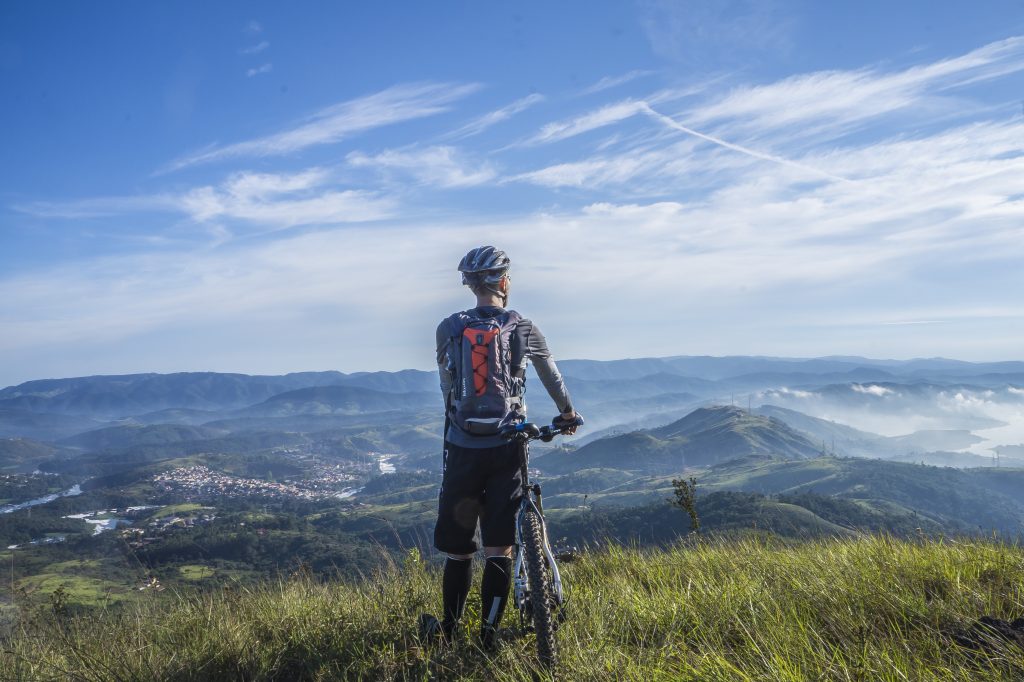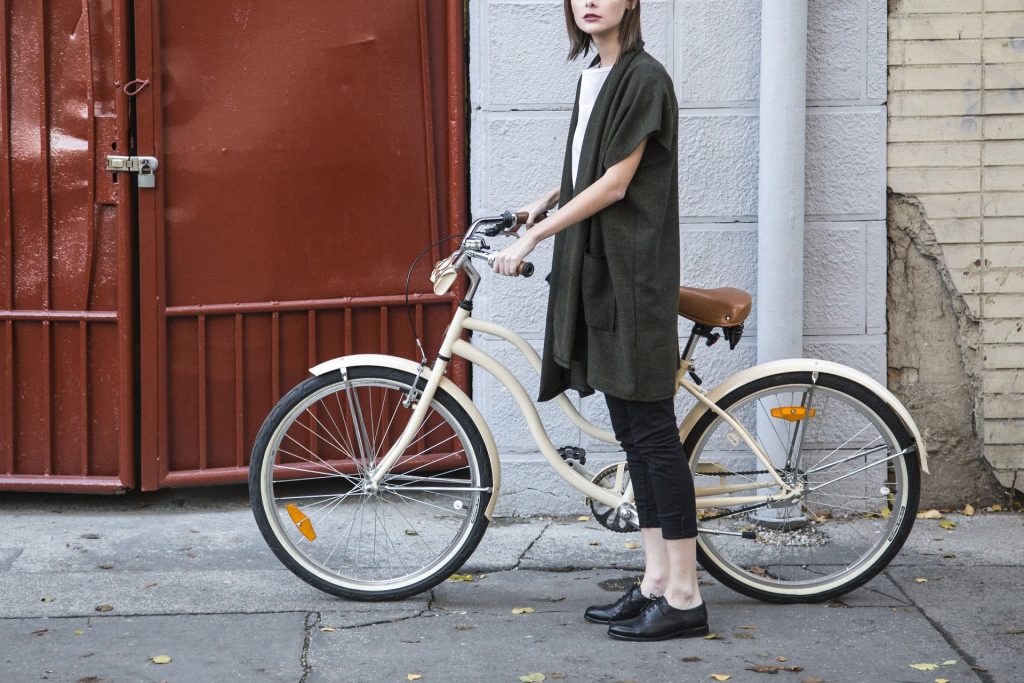Mayor Law’s Ultimate Guide to Bicycle Safety in Portland, OR
We know Portland loves to bike—it’s convenient, healthy, inexpensive, and beneficial to the environment. Unfortunately, outside factors (distracted drivers) can make the experience frightening and not at all enjoyable. Bike crashes have significantly decreased since the 1990s, but there’s still room for improvement. In 2016, 44 people died in traffic-related incidents in Portland, and five of these people were bicyclists. That’s more than 10%!
We frequently discuss bicycles on our blog, but we want to give you even more bicycle safety tips by providing you with an updated guide. You can never know too much about protecting yourself while you ride.
Use safe practices
It’s simple: learn the rules of the road. Like driving, when you bike in a crosswalk, pedestrians have the right of way. It’s required by law to give them an audible warning before you pass.
When cyclists are in a bike lane, they have the right of way over vehicles. Although they have the right of way, anyone on a bike should obey red lights and follow general guidelines.
We also recommend practicing hand signals. Not only does this help you be more predictable to drivers, but it’s courteous and required by law. As you turn, point in the direction you’re heading.
Be cautious in the metro area
While the city has made a strong effort to better accommodate cyclists, bike lanes, on-street bike racks, and intersection bike boxes can only do so much in terms of bicycle safety in Portland.
It’s easy to pedal fast through residential areas; however, flying through downtown at a high speed is asking for trouble. Maintain a slower speed, pay close attention to street markings, and approach every intersection with caution.
Do you like riding at night? Equip your bike with flashing LED lights. Use a front white light and rear red reflector. One last thing to note: you’ll need to lock up your bike—especially in the city. A bike is truly an investment, and we know you don’t want anyone to take it. This can easily happen at late hours, so do yourself a favor and buy a good lock.
Exercise caution when crossing
Navigating intersections can be tricky, and some are more difficult than others. When it comes to crossing any road, you should be prepared to expect the unexpected. You need to ride under the assumption that people can’t see you. While you may see cars in front of you, there’s always a chance that they don’t see you. As you travel, be sure that you’re never riding against traffic—you should always ride with the flow of traffic, biking as close to the side of the road as possible. Ultimately, when you bike, you need to ride defensively and make eye contact with drivers.
Practice the ABC’s
The “ABC Quick Check” is an easy way to recall what should be checked before riding your bike.
A – Air
Inflate your tires to the pressure specified on the side of the tire. Frequently check for any damage on your tires. This is particularly important if you have old tires.
B – Brakes
Replace your brakes as well as your brake cables and pads as needed.
C – Chain
Wipe all grime off the chain, and be sure the chain rotates smoothly when you pedal.
Q – Quick Release
Your quick releases should be tight and closed (or curved in).
C – Check
Perform an all-over inspection of your bike. Are the wheels wobbling? Is anything loose or rattling? Try and fix these issues as soon as you spot them.
Look the part
While Oregon law requires those under 16 years of age to wear a helmet, we suggest wearing a helmet no matter how old you are. This is paramount to bicycle safety. A hard-shell helmet protects your head and brain from injury in accidents, and by not wearing one, you’re putting yourself at risk. Feel embarrassed when you’re wearing one? Don’t be: 80% of Portland cyclists wear helmets. When it comes to your ears, it’s best to keep both of them earbud-free, but if you must, leave one earbud out.
Sport reflective, light-colored clothing to aid in visibility at night. For your comfort, we recommend dressing in layers. If it’s raining, add an additional layer, such as a rain cape. Hoods obstruct your view, and jackets typically don’t offer the ventilation you need in warm rain.
You should also try wearing gloves to reduce any aches. There are a variety of gloves out there, including waterproof, full-fingered, half-fingered, and more.
Mind the rain
As Portland residents, it’s easy to get used to the rain. However, when you’re on a bike, things are different. In the rain, pavement becomes slippery, and your surroundings start to look foggy.
Above all else, slow down, brake earlier, and leave plenty of stopping distance. Avoid leaves, painted surfaces, and metal surfaces (e.g., manhole covers and sewer gates). These areas are very slick when wet. Finally, adjust your lights for the change in weather. This will give you a better view of your surroundings, and it will also make you more visible to cars.
If you can, stay out of puddles—you never know if you’re going to come across a pothole. Should you find one, call PBOT’s pothole crew at 503-823-1700.
Another great way to prepare your bike for rainy rides is to outfit it with fenders. This protects you from the mud and water that’s kicked up by your bike. Trust us, it’s never fun getting soaked when you have a long ride ahead of you!
Stay informed
It’s always a good idea to plan where you want to go. You’ll want to choose roads that are going to be easy to travel via bike; after all, some roads are definitely more suitable for cars than bikes. PBOT actually offers an interactive map of downtown, so you can confidently choose your route ahead of time.
When in doubt, if you’re unsure which roads are under construction, you can call the Portland Bikeline at (503) 823-CYCL for more information regarding bike path maintenance. You can also call to request directions or a bike rack.
Don’t have a bike of your own? No problem – there are plenty of places to stop for bike rentals downtown. Plans change quickly and with so much to do in Portland, you’ll never know when you’ll need to pick up or drop off a bike.
We hope you enjoyed reading through our comprehensive list of bicycle safety tips. It’s our goal to educate Portland residents, helping them feel comfortable and confident on their biking excursions around the city. If you’ve been injured in a bicycle accident, contact Mayor Law. From beginning to end, our Portland Bicycle Accident Attorney ensures you receive maximum support and fair compensation. Give us a call today.



